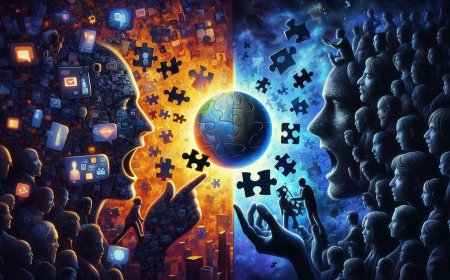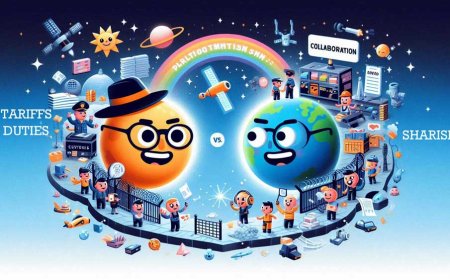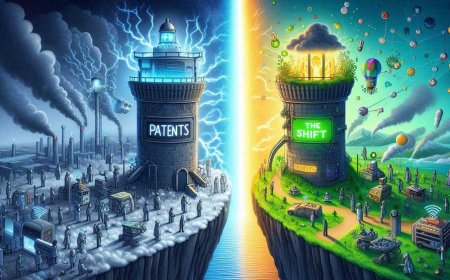Sharism and Digital Civilization: Building Bridges in a Fragmented World
Sharism and Digital Civilization: Building bridges in a fragmented world through collaboration, openness, and shared responsibility for a sustainable digital future. Explore Sharism as a new socio-economic philosophy promoting collaboration, equity, and sustainability in the digital age. Learn how Sharism can help reconnect society, counter polarization, and foster a more inclusive, ethical, and cooperative digital civilization.

We are living through a time of radical transition—one as impactful as the Industrial Revolution. Today, the Technological Revolution is not just transforming work or the economy; it is reshaping culture, society, human relationships, and even our perception of reality. Amid this acceleration and disorientation, Sharism emerges as a new socio-economic philosophy designed to help us rebuild connections and meaning.
Technology should connect us—but too often, it divides. Social media algorithms prioritize polarizing content, amplified by bots that spread disinformation, sow conflict, and fuel hate. Digital communication has grown noisy, aggressive, and divisive, creating an increasingly fragmented society.
Sharism is a response to this landscape. It’s a vision rooted in sharing, collaboration, equity, and sustainability. More than a system for exchanging resources or content, it aims to generate a new ethic of participation—a new digital humanism.
In a world where technology is becoming both invisible and omnipresent, Sharism offers a guiding principle: use technology to build bridges, not walls. Encourage the collective creation of knowledge, transparency in data, accountability in its use, and place the human being at the center of the sharing economy.
Just as the Enlightenment brought light to the darkness of absolutism through reason and universal rights, Sharism could become the foundation of a new digital social contract—capable of countering fragmentation and restoring meaning and community.
The question isn’t whether technology will shape our future, but what kind of culture will shape technology. Sharism is a concrete, inclusive, and accessible proposal to face today’s challenges and co-create a more empathetic, fair, and collaborative digital civilization.
From Production to Connection: A Paradigm Shift
During the Industrial Revolution, society was reshaped around mass production and mechanical labor. Today, digital technology—Internet, social media, artificial intelligence—is redefining everything: not just the economy, but also the structure of human and social relationships. Data is the new oil, and online interactions have become the new battleground for influence and power.
In this new reality, digital platforms have taken on a dominant role, acting as intermediaries in nearly every type of relationship: social, commercial, and political. But their impact is far from neutral.
Sharism as a Systemic Response
In this scenario, Sharism offers an alternative: a vision in which the sharing of knowledge, resources, data, and creativity is not just an ethical act, but also a strategy to build a more equitable, collaborative, and sustainable economy.
Unlike models based on exclusive ownership, individual profit, and control, Sharism promotes:
- Active participation from all sectors of society,
- Open circulation of knowledge,
- Co-creation of value,
- Respect for diversity and social empathy.
Sharism draws on the logic of open-source collaboration, crowdsourcing, and cooperative networks. It doesn’t reject the market—it rethinks it. It doesn’t abolish profit—but seeks to distribute it more fairly. It doesn’t oppose technology—but reorients it to serve communities rather than capital.
For Technology That Unites, Not Divides
The core of Sharism is not merely economic; it is deeply cultural and political. What we need is a new awareness in how we use technology: transparent platforms, ethical algorithms, and artificial intelligence designed to promote cooperation—not conflict.
We need communication that builds meaning, not destruction. We need a digital economy that values trust—not surveillance.
Sharism as Vision and Action
Sharism is not a theoretical trend — it is a call to action. In a world that is increasingly interconnected yet deeply divided, sharing is not a sign of weakness: it is resistance, it is design, it is revolution.
Just as the Industrial Revolution gave rise to new ideologies and social movements, today we need a new grammar for our time. Sharism can be that grammar — to think, to create, and to live better — together.
More information about Sharism @https://sharism.wiki and https://sharism.one
What's Your Reaction?



































